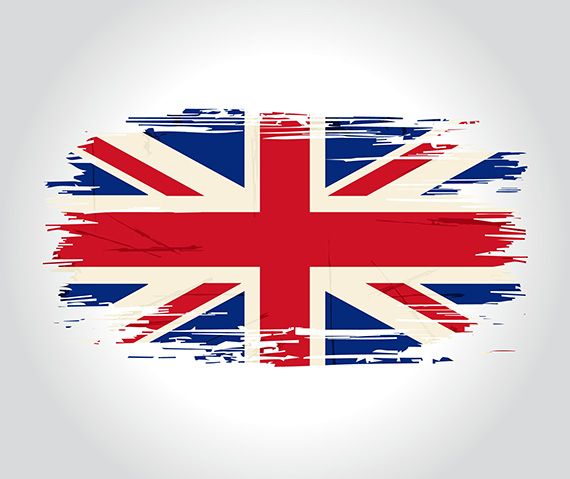More news
- Focus on the global coatings market: Global coatings market outlook
- View from the UK: Navigating chemical policy and sustainability
- Focus on adhesives: Unveiling unbreakable bonds – Testing redefines physical strengt...
- Focus on adhesives: Henkel and Covestro collaborate for sustainability of engineered wood ...
- Advances in construction chemical technology: What’s new in 2024?

With sustainability dominating the coatings industry’s landscape, Sally Gibson reports on the rise of greenwashing claims within the industry, focusing on misleading buzz words for consumers and the regulatory implications this is having for paint manufacturers in the UK and Europe
Consumers around the world are increasingly seeking out greener products, including from their paint. This, combined with a post-COVID emphasis on health and the desire for coatings that can improve indoor air quality and reduce bacteria and microbes on surfaces, has led to a surge in consumer-facing labels that industry regulators are increasingly concerned are misleading the public. Claims that a paint is ‘carbon neutral’, ‘has ‘zero VOCs’ or is ‘non-toxic’ are regularly displayed on paint tins, despite the inevitable impossibility of the statement.



David Park, BCF Public Affairs Manager told PPCJ, “The use of the phrase ‘Non-Toxic’ is really there to imply to consumers that competing products, without this label, are more toxic than theirs. It is misleading because actually, standards across Europe and the UK are so high that other companies, who do not think to put this label on their tin, will be of a similar environmental standard.
“Similarly, the term ‘Chemical-free’ is misleading, as all paint products, regardless of the raw materials used or whether they are labelled as hazardous, are chemical-based products and are required to comply with relevant chemical legislation.”
This is a sentiment echoed by Michiel Brouns, Owner and Founder of Brouns & Co, a manufacturer of linseed oil paint, a coatings product that can claim to be sustainable. When he speaks about the (as he refers to it) ‘plastic paint’ industry and its claims of being non-toxic, he outrightly laughs: “Greenwashing is a problem with the plastic paint industry. You commonly see paints labelled as ‘non-toxic’ – but that is non-sensical. It is made out of chemicals and if you were to drink it, you would have to go to hospital. It would poison you. You would not allow your child to drink paint.”
On the topic of VOC claims, “The BCF believes that ‘VOC-free’ and ‘Zero VOC’ are false claims,” says Park, highlighting “the need for companies to compete on a level playing field and use clear language on important topics like sustainability and environmental claims.” The BCF has itself released a Green Claims Guide, to help coatings manufacturers navigate this topic. But Park acknowledged that the Green Claims Guide “is a voluntary industry initiative, rather than a legal requirement, so we cannot give out any formal penalties. Most companies that we contact do adapt their marketing material to be in line with our guidance – it is often over-zealous marketing that causes problems, and there is often a technical knowledge gap that we can help to fill.”
The UK’s national watchdog the Advertising Standards Authority (ASA) released updated guidance on false environmental claims on June 23, 2023 [1] based on rulings, including a handful involving paint companies [2]. The paint companies were reprimanded for using vague terms such as ‘natural’ and not considering the entire product lifecycle. The UK Competition and Markets Authority (CMA) has released guidance on making environmental claims on goods and services [8], showing a firmer stance from authorities on misleading claims of sustainability.
Europe makes its mark
Often seen as the innovator when it comes to environmental regulations, this is an issue that the European Union has been looking into for some time. The March 2023 proposal for a European Union (EU) ‘green claims directive’ [3], aims to prevent greenwashing in the 27-country bloc by requiring prior certification and approval of both green claims and eco-labelling by accredited independent bodies.
“If you want to use green claims you will have to prove it,” said EU environment Commissioner Virginijus Sinkevičius, when unveiling the proposal. Sinkevičius complained that currently it was “extremely difficult to separate the truth from fiction” in sustainability-focused marketing, highlighting a 2020 European Commission study that found 53.3% of environmental claims in the EU were vague, misleading or unfounded [4].
If the law is approved, national regulators would check green claims on the market comply, making findings public and fining those guilty of greenwashing, because “we want that the proposal has teeth,” said Sinkevičius. Under this legislation, consumer groups could also bring collective legal action against companies they suspect of greenwashing.
To stop what Sinkevičius said was a “proliferation” of green labels, the proposal sets up a registry of acceptable labels that meet minimum transparency rules, including the EU’s own ecolabel scheme, which also complies with the green claim requirements.
“If a product already has an EU ecolabel it can comply with the green claims directive to some extent,” Karthik Kumar, Sustainability Officer of the European Council of the Paint, Printing Ink and Artists’ Colours Industry (CEPE) told PPCJ, noting that indoor and outdoor paint already has an EU ecolabel.
But it was not all good news, as Kumar said that CEPE is worried the proposal may be too strict when taking all of the ingredients and benefits into account: “if the product contains any substances of concern, you are not allowed to make a claim” of environmental good practice, rather than setting a threshold for volume content of such materials.” CEPE contends that this generic hazard-based approach ignores the fact substances might be critical for product sustainability and warns that the current wording would mean even an ecolabelled product containing a hazardous substance could not bear green claims. CEPE is calling for a risk-based approach.
While there is clearly a wish for clearer and less misleading sustainability labelling from both industry bodies and regulators alike, one concern that would face the industry is the costs and administrative burden linked to the certificate of conformity that the UK or EU member states would issue for green claims and labelling, especially for SMEs.
However, with pressure growing from both sides of the coin for more honesty in sustainability marketing, the need to avoid greenwashing claims will only continue to grow more pressing for the coatings sector.
[2] https://www.asa.org.uk/rulings/edward-bulmer-ltd-a18-470596.html; https://www.asa.org.uk/rulings/technical-specialities-ltd-a19-1032603-technical-specialities-ltd.html; https://www.asa.org.uk/rulings/little-knights-ltd-G18-1017615.html; and https://www.asa.org.uk/rulings/celtic-sustainables-ltd-a18-467489.html
[3] https://eur-lex.europa.eu/legal-content/EN/TXT/?uri=COM%3A2023%3A0166%3AFIN
[4] https://eur-lex.europa.eu/legal-content/EN/TXT/PDF/?uri=CELEX:52022SC0085
Example packaging images kindly provided by the BCF







